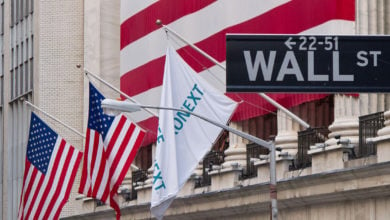Originally posted Dec. 10 on Tech for the People.
The Federal Trade Commission along with 46 U.S. states, plus the District of Columbia and Guam, announced a lawsuit this week against Facebook. Alabama, Georgia, South Carolina and South Dakota are not part of the action.
The 53-page complaint outlines the unique position that Facebook occupies within the social media space, and how its acquisitions of WhatsApp, Instagram and others have enhanced its power. It includes some juicy quotes from Mark Zuckerberg (“It is better to buy than compete”) and Sheryl Sandberg (“Because we have this critical mass of people, that attracts new people to sign up, it attracts developers who want to find customers for their apps and websites, and it attracts advertisers [who] want to reach the audience”).
Following a number of high-profile Congressional hearings, the complaint isn’t a particular surprise. The question that remains is: What will breaking up Facebook accomplish?
Progressive calls for breaking up monopoly
During primaries for the 2020 presidential campaign, Democratic candidates Bernie Sanders, Tulsi Gabbard and Elizabeth Warren called for breaking up Facebook. Joe Biden, Pete Buttigieg, Kamala Harris and Amy Klobuchar expressed some sort of support for vague regulation or oversight.
The FTC’s suit is not about privacy or the suppression of speech, the roots of most complaints about social media companies.
The strongest calls for breaking up the big social media and tech companies played on the concerns of the country. I believe that at the very least Sanders, Gabbard and Warren were honest in their call, and the popularity of Sanders and Warren in the primary forced the other candidates to make their statements, nebulous as they may have been.
A 2020 study by the Knight Foundation and Gallup found that “68% [of Americans] are very concerned about the privacy of personal data stored by internet and technology companies.” This is unsurprising, as a 2019 Pew study found that 62% felt “it is not possible to go through daily life without companies collecting data about them” and about the same (63%) felt that way about the government. From the same study, 81% felt they had “little/no control over the data” collected by companies.
The complaint is not about privacy or speech
Data privacy and surveillance are clearly concerns. The revelations from the Cambridge Analytica scandal and the Snowden revelations brought government and corporate data collection to the forefront.
Yet the FTC’s suit is not about privacy or the suppression of speech, the roots of most complaints about social media companies. The complaint makes it clear that the relief they seek is for advertisers and competitors:
By suppressing, neutralizing, and deterring the emergence and growth of personal social networking rivals, Facebook also suppresses meaningful competition for the sale of advertising. Personal social networking providers typically monetize through the sale of advertising; thus, more competition in personal social networking is also likely to mean more competition in the provision of advertising. By monopolizing personal social networking, Facebook thereby also deprives advertisers of the benefits of competition, such as lower advertising prices and increased choice, quality, and innovation related to advertising.
The injured party, according to the FTC, is not the people who use Facebook, Instagram or WhatsApp. It’s the class of advertisers who seek to be able to sell us highly-targeted promotions based on our interests and activities. Data collection under a de-monopolization would not stop, but it would be decentralized.
Capitalism’s drive towards profit – and monopoly
Instagram recently added a Shopping tab, strategically placing it where the Notifications button was. Users’ muscle memory — to open the app and tap the notifications area to get that serotonin hit from seeing new likes and comments — was taken advantage of to get them shopping.
Instagram would have added Shopping — or something like it — even if it weren’t owned by Facebook.
Practically no one — except advertisers and shop owners — is happy with the change. Just this morning, Instagram also added Shopping to Reels, its short-form video feature that competes (poorly) with TikTok.
How did we get to this point where an app originally designed for sharing photos with your friends is pushing shopping and advertisements which feels like they come up as every fourth picture? Instagram received $500,000 funding from venture capitalist firms Andreessen Horowitz and Baseline Ventures 7 months before it launched in the app store. From there, it continued raising money: $7 million from a group that included Twitter’s Jack Dorsey, who would have had a particular interest in anything that could compete with Facebook’s growing power; then $50 million in April of 2012.
Facebook itself purchased Instagram for $1 billion, when the company was valued at $500 million.
Even if Facebook hadn’t purchased Instagram, the company owed significant money to its investors. Their investors aren’t just giving away money, they are effectively lending it in order to make a greater profit back for themselves, much of which will go back into investments in other companies. As a result, Instagram would need to find creative ways to make money, including but not limited to adding advertising as it did in 2013.
Capitalism’s hyper-present drive for growth means that Instagram needs to continue to compete against TikTok, Twitter and others. Instagram would have added Shopping – or something like it – even if it weren’t owned by Facebook. In order to make Shopping a successful (meaning profitable) feature by showing products and ads that people are more likely to interact with and ultimately purchase, the app’s data collection and analysis would need to also increase. We’d be in a similar position to where we are now.






